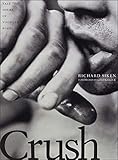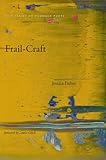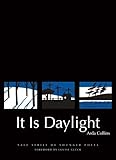As a Buddhist priest, I find in Louise Glück’s American Originality words for an increasingly bewildered and besotted country—a series of meditations on poetry’s power to orient, understand, heal, celebrate, and preserve the self’s “Individual, irreplaceable, human voice.”
1. America in Situ
Glück’s America is “famously, a nation of escaped convicts, younger sons, persecuted minorities, and opportunists.”
Nursed on “images and narratives of self invention,” our invented selves are insecure. Stretched between the need for distinction on the one hand and corroboration on the other, Americans dart about, encumbered by a hustler-complex: “Under the brazen ‘I made up a self’ of the American myth, the sinister sotto voce, ‘I am a lie.’”
 Thus the American is wonderfully original, aware of herself and her life as being both the origin—the place, the raw material from which she culls meaning—as well as the originator: the poet who mines herself, as it were, from nothing, to justify her purpose for being. This situation generates panic, as with Richard Siken, in whose poems (from Crush) “desperate garrulousness delays catastrophe…Everything is a trick…everything is art, technology—everything that is, can still change.”
Thus the American is wonderfully original, aware of herself and her life as being both the origin—the place, the raw material from which she culls meaning—as well as the originator: the poet who mines herself, as it were, from nothing, to justify her purpose for being. This situation generates panic, as with Richard Siken, in whose poems (from Crush) “desperate garrulousness delays catastrophe…Everything is a trick…everything is art, technology—everything that is, can still change.”
Of those who face the apparently contradictory task of creating an original—primary and distinct—self while burdened by that self’s need for broad accord: “The [American] artist must look like a renegade and at the same time produce, whether by accident or design, an aesthetic commodity, a set of gestures instantly apprehended as new and also capable of replication.”
“The cost of this pressure,” says Glück, “has been immense.”
2. Louise Glück’s View
“Against the background of the eternal, the void, stories are musical phrases, simultaneously completed formal shapes and inconclusive fragments,” Glück writes.
America’s is the culture that forces the self to sell. One is made significant by virtue of having been copiously consumed (replicated). Given this state of affairs, the self’s substance is determined by consumer demand. Intuitively, we loathe and rebel against this situation: for the limitation it imposes on our freedom, for its disinterest in our claim to, need for, and enjoyment of particularity, and for its assault on our dignity. Witness Glück on Jay Hopler, whose “dreamy obscurities and rapturous effusions share with his more direct speech a refusal to be groomed into uncommunicative cool”—who, for protecting spiritual and artistic purity, “writes like someone haunted or stalked,” who “wants, simultaneously, to hide and to end the anxiety of hiding, to reveal himself…to give himself away.”
3. Voices
In Part 3 of her book—“Ten Introductions”—Glück provides a series of 10 essays: introductions to collections she encountered during a busy-sounding period of her career, when, from 1999-2010, she served as judge for three separate prizes: the APR/Honickman First Book Prize, a first-book competition overseen by the American Poetry Review (1999), the Bakeless Prize, supervised by Michael Collier (2003), and the Yale Younger Poets Prize (2003-2010). She reports that these introductions were “thrilling to write,” for having felt that in the poet she introduced, she “had discovered an immense talent”; so that her act of describing the artist “took on a genuine urgency, not unrelated to messianic fervor.”
In her choice of winners, one finds the poetic sensibilities Glück appreciates as answers to the American’s troubling dilemma: If Aristotle is correct, our meaning is found in community and connection, which is to say historically, temporally, and by corroborative consensus. How, then, does one preserve an individual sense of self while at the same time participating in a society that—in the name of order, security, subsistence—must pigeonhole and hammer flat its citizens’ edges, curtail their freedoms, and this the very society upon which the self depends for meaning?
Glück’s answer to this dilemma is that we ought to live with awareness that the truths which hold society together—and in which we necessarily find ourselves enmeshed as its members—are not fixed. They are bound to an eternal cycle of change: forever subject to both deterioration and invention—a mirror, in fact, of the very same processes by which the self is governed.
 Our answers to the question of human purpose and meaning, for Glück, ought not to resemble the fixed, well-packaged commodities—the ideologies—thrown down for the sake of preservation, in the self’s and civilization’s march through time. Rather, they should constitute a performance that resists this tendency, that accurately assesses and provides a creative response to the activity which takes place at the self’s and society’s inception: a response to the event at our origin, in the tension between lyric and narrative possibilities—where, out of void, what has been recedes to make way for what’s new. One example of this is the poetry of Jessica Fisher, whose poems (from Frail-Craft) “move like dreams or spells” where momentum “seems less a function of will than an evolved form of passivity…that condition in which freedom from decision and choice makes possible a unique flowering of attentiveness and reflection.”
Our answers to the question of human purpose and meaning, for Glück, ought not to resemble the fixed, well-packaged commodities—the ideologies—thrown down for the sake of preservation, in the self’s and civilization’s march through time. Rather, they should constitute a performance that resists this tendency, that accurately assesses and provides a creative response to the activity which takes place at the self’s and society’s inception: a response to the event at our origin, in the tension between lyric and narrative possibilities—where, out of void, what has been recedes to make way for what’s new. One example of this is the poetry of Jessica Fisher, whose poems (from Frail-Craft) “move like dreams or spells” where momentum “seems less a function of will than an evolved form of passivity…that condition in which freedom from decision and choice makes possible a unique flowering of attentiveness and reflection.”
From Fisher’s “Journey”:
Because the valley spreads wide, ridged with signs
we read; or because what we needed was always at hand—
reach down and there was a book, there a slipper, there a glass
of ice cold water. Hopefully we walked
the paths laid before us, there was a burr-bush,
there a blue jay, quail and other creatures, too many
to follow. Where did they go once we lost their lead?
Which is to say, where did we not go? Quick, quick,
they called to us, but we heard only the sound
of our boots on dried leaves, and were mesmerized;
we spoke to one another of things in the path,
we chucked to our horses, when we had them,
and when we had hats we took them in our hands
and hallooed to the passersby (brahma bull, bright
green bird) though we were not yet out of the wood,
instead it closed in around us, deep were its streams
and the trees thick around and thick together…
4. Rilke et al.
“Contemporary literature,” writes Glück, “is to a marked degree, a literature of the self examining its responses,” and in her essay “American Narcissism,” she traces the origins of this literature back through Freud, Keats, Whitman, Dickinson, and especially Rainer Maria Rilke, who postulated “a void, an absence into which the world flooded.” For Rilke, “The future had begun to disappear, and would continue—terrifyingly—to do so…all figures for continuity and trajectory began to seem false…[He] maps out a spiritual terrain never before visible or audible, never before necessary…an art that placed the self, actually or emblematically, at the center of lost time (the moment, the instant, just past).”
5. Poet as Secular Priest
Born of “the moment, the instant, just past,” Rilke’s subject is unable to witness its own inception—only, rather, the trail of afterbirth assembled post-genesis. It only knows itself as an effect: as having been the result of—and subject to—time. Aware of itself, its environment, its history as having been granted by time, this self is equally aware that time, for all its generosity, will come to reclaim its gifts.
 Thus, in Arda Collins’s It Is Daylight, “The self in the present, always both performing and taking notes, becomes the self that acted and the self that remembers, the shift in tense making each self potentially whole. This, together with the atmosphere of searching or incompleteness, makes, despite the poem’s sadness, a model for hope. If something can end (the before of before and after), something can begin; time can begin, feeling can begin.”
Thus, in Arda Collins’s It Is Daylight, “The self in the present, always both performing and taking notes, becomes the self that acted and the self that remembers, the shift in tense making each self potentially whole. This, together with the atmosphere of searching or incompleteness, makes, despite the poem’s sadness, a model for hope. If something can end (the before of before and after), something can begin; time can begin, feeling can begin.”
Time is such that gain necessitates loss. And Glück would have us see that what we use—what we do—to appease such loss is poetry. This is the sense in which it can be said that poetry, for Glück, is religious: “By giving form to devastation, the poem rescues the reader from a darkness without shape or gravity; it is an island in a free fall; it becomes his companion in grief, his rescuer, a proof that suffering can be made somehow to yield to meaning.”
As a kind of secular priest, the poet strives to preserve by his expression what is worthy of edifying and sharing: that which, without his words, will otherwise perish. “His belief in art, and investment in art, in the dream of articulation, project him constantly into the future—the hypothetical moment in which comprehensive darkness acquires limits and form,” Glück writes. The life that has been granted, knowing it’ll be lost, invents itself through voice, narrative, words, bringing to its community and to its death a meaning that inspires “the compensatory fantasy that one can make a new self…The poem is a revenge on loss, which has been forced to yield to a new form, a thing that hadn’t existed in the world before.”
6. Two Examples
Two examples of such “new form” are Katherine Larson and Spencer Reece.
A grave passivity infuses [Radial Symmetry]; experience is less sought than received. The poet is a kind of dazed Miranda, so new to the world that its very ordinariness seems an emblem of wonder….I think a reader will remember these poems for their beauty, the profound sense of being in the present that their sensuality embodies, and a sense, too, of its cost.
[From Larson’s “Broke the Lunatic Horse”:]
“The Milky Way sways its back
across all of wind-eaten America
like a dusty saddle tossed
over your sable, lunatic horse.
All the plains are dark.
All the stars are cowards:
they lie to us about their time of death
And do nothing but dangle
like a huge chandelier
over nights when our mangled sobs
make the dead reach for their guns.
I must be one of the only girls
who still dreams in green gingham, sees snow
as a steel pail’s falling of frozen nails
like you said through pipe smoke
on the cabin porch one night. Dear one,
there are no nails more cold
than those that fix you
underground. I thought I saw you
in the moon of the auditorium
after my high school dance.
Without you, it’s still hard to dance.
It’s even hard to dream.”
How are we to master suffering? Over and over, the poems in The Clerk’s Tale discover in modesty a discipline by which the desire to affirm can overcome repeated disappointment that threatens to become withdrawal or despair. They take solace in simple decency; they admire dignity, as they admire the natural forms in which spontaneity survives…I felt emanating from Spencer Reece’s work a sense of immanence that belongs to religious passion; it is a great thing to have it again in art:
[From Reece’s “Chiaroscuro”:]
“When the ficus beyond the grillwork darkens,
when the rind cools down on the lime,
when we sit here a long time,
when we feel ourselves found,
….“we will turn at last,
we will admire the evening’s fading clues,
uncertain of what dark portends
as another season ends
and the fabulous visitors depart in luxury cars,
we will savor the sharp light from the summer stars,
we will rejoice in the fronds tintinnabulating down these
empty streets,
these beautiful streets with all these beautiful names—
Kings, Algoma, Via Bellaria, Clarendon, Via Vizcaya,
Via Del Mar, El Vedado, Banyan, El Brillo, El Bravo,
Via Marina.”
7. On the Relationship of the Poet to Her Art
Part 4, the final section of Glück’s book, includes three essays: “On Revenge,” “Estrangement,” and “Fear of Happiness.” Here Glück offers a kind of confession. It is not an offering she makes lightly. She has worked for it—on our behalf. She’s suffered awkwardness, anxiety, insecurity, darkness, despair. And yet she did not settle for, stop, or indulge these states. Rather, she examined them, and examined herself examining them. She clearly sought to understand their meaning, origin, and purpose, to move beyond—to shed—herself into art. And if her drive for such understanding was not initially motivated by an urge to educate, it seems she came to learn through self-understanding that her purpose—and purpose universally—requires one to make paradigmatic one’s suffering without losing the anecdotal particularity by which it commands temporal, corporeal substance, significance, meaning, and force. The essays of Part 4 are offered with a kind of “take these thoughts if you want; I found them to be a helpful working-through, and perhaps you will, too” attitude, exemplifying the humor, detachment, and modesty Glück extols as protections against narcissism. We are called to,
summoned, invoked into ourselves by way of this poet’s contemplations—offerings, it seems, as equally fitting for “Goodbye” as “Hello.”
Here is, perhaps, Glück’s conclusion: “Nothing in [the] past can be changed or restored. But the present can change the way it is thought about. In this new enactment, presence can replace absence, which is the best that can be managed in human time.”
Let me leave you with her:
“Occasionally something will give pleasure, will actually charm or divert or entertain, will, to use that terrifying word, disarm. Insofar as our fearful compulsive, rigid natures allow, I think we should welcome what follows.”











